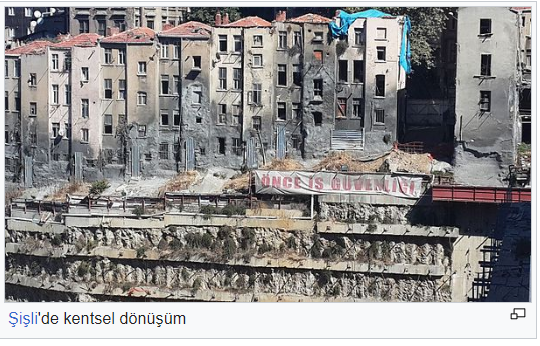A recently accepted urban renewal law in Turkey, aimed at earthquake-proofing Turkey’s flimsily built housing stock in disaster-prone areas, has incited controversy. Critics argue it could lead to displacement of homeowners and potential declaration of valuable urban areas as reserve areas.
Turkey must earthquake proof its dilapidated housing stock
Since their first enactment in May 2012, Urban Renewal bills have guided urban transformation efforts across Turkey. Of approximately 36 million independent structures, including around 31 million residences and 5 million commercial units nationwide, 6 million are at risk, with 2 million requiring urgent repairs.
The proposed changes to existing statute’s definition of reserve building areas are particularly controversial, suggesting that even areas with existing property rights could be declared as new settlement zones, subject to transformation.
The law has removed the requirement for the consent of two-thirds of stakeholders, allowing decisions to be made by a simple majority and permitting security forces to intervene in evacuations of risky buildings.
Dispossession Plan
The Union of Chambers of Turkish Engineers and Architects (TMMOB) has denounced the law as a ‘dispossession plan’. The contention is homeowners could be relocated elsewhere, becoming indebted to afford the move. If unable to pay their debts, properties could potentially pass to the treasury, leaving homeowners with no legal remedy or adequate state assistance. Critics demand policies that prioritize the public over capital, and solutions ensuring housing rights.
A gateway to major property grab in Istanbul?
Journalist Bahadır Özgür of Gazete Duvar, is raising significant concerns over what he describes as “the largest property grab in history”. This law, according to Özgür, sets the stage for drastic shifts in property ownership and urban redevelopment in Istanbul, particularly targeting the city’s high-value centers.
Özgür pointed out the historical pattern of the government exploiting ‘risk’ and ‘reserve area’ declarations for profit, often at the expense of low-income residents. He argues that this history provides a clear reference for understanding the potential outcomes of the current law.
In Beyoğlu, one of the most valuable property areas in Istanbul, the immediate implementation of the law by the local municipality, as reported by Özgür, shows the urgent and far-reaching effects of these changes. The municipality’s assignment of a private company, Marmara Urbanism Urban Transformation Project Development Management Inc., to oversee the transformation, has raised questions about transparency and potential conflicts of interest, he concluded.
Shift from rent assistance to investor support
The new proposal appears to shift focus from offering rent assistance under the current law to providing aid to investors, as decided by the President. This change indicates that any property declared within a reserve building area could be subject to dispossession, irrespective of ownership status.
Esin Koymen, President of the Istanbul Branch of the Chamber of Architects claims that the proposed law allows for auctioning at-risk areas without the requirement of an implementation project, which Koymen argues bypasses the necessary planning process. He cites examples where inadequate preparation led to inefficient and potentially hazardous construction in earthquake zones.
Koymen criticizes the proposal as an effort towards commercialization, pointing out how areas around projects like Kanal Istanbul have transformed into lucrative property investments. This raises questions about the law’s true intent—whether it is more focused on facilitating trade than ensuring safe and sustainable urban development.
The Minister for Urban Affairs, Mr Ozhaseki on the other hand claims that the draconian aspects of the bill are intended to expedite the process of rebuilding, pointing out that in the past a single flat-owner in a multi-unit apartment could hold up the project.
Other pro-government experts add that Turkey doesn’t have the time for legal reviews because many seismologists warn that a quake measuring at 7 or above in the Richter scale could lay Istanbul low “any time”, as the twin earthquakes in the southeast of the country in February 2023 caused estimated property damage of $100 bn as well as killing 51K , and triggering a massive exodus from the affected 11 provinces.
Follow our English language YouTube videos @ REAL TURKEY: https://www.youtube.com/channel/UCKpFJB4GFiNkhmpVZQ_d9Rg
And content at Twitter: @AtillaEng
Facebook: Real Turkey Channel: https://www.facebook.com/realturkeychannel/
